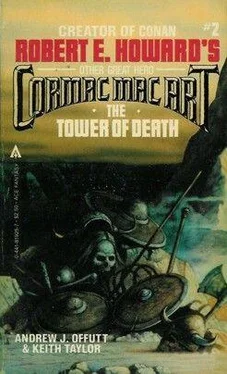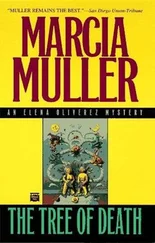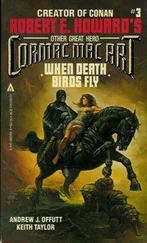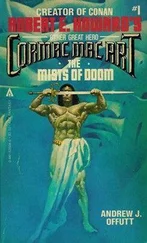Andrew Offutt - The Tower of Death
Здесь есть возможность читать онлайн «Andrew Offutt - The Tower of Death» весь текст электронной книги совершенно бесплатно (целиком полную версию без сокращений). В некоторых случаях можно слушать аудио, скачать через торрент в формате fb2 и присутствует краткое содержание. Жанр: Фэнтези, на английском языке. Описание произведения, (предисловие) а так же отзывы посетителей доступны на портале библиотеки ЛибКат.
- Название:The Tower of Death
- Автор:
- Жанр:
- Год:неизвестен
- ISBN:нет данных
- Рейтинг книги:3 / 5. Голосов: 1
-
Избранное:Добавить в избранное
- Отзывы:
-
Ваша оценка:
- 60
- 1
- 2
- 3
- 4
- 5
The Tower of Death: краткое содержание, описание и аннотация
Предлагаем к чтению аннотацию, описание, краткое содержание или предисловие (зависит от того, что написал сам автор книги «The Tower of Death»). Если вы не нашли необходимую информацию о книге — напишите в комментариях, мы постараемся отыскать её.
The Tower of Death — читать онлайн бесплатно полную книгу (весь текст) целиком
Ниже представлен текст книги, разбитый по страницам. Система сохранения места последней прочитанной страницы, позволяет с удобством читать онлайн бесплатно книгу «The Tower of Death», без необходимости каждый раз заново искать на чём Вы остановились. Поставьте закладку, и сможете в любой момент перейти на страницу, на которой закончили чтение.
Интервал:
Закладка:
“Uh-oh, sorry. Hmmm.” He groped under her hair, which was very soft. “Think ye I can be taking this from ye without your undressing?”
“…no…”
Cormac heaved an elaborate sigh. “Ah, then I must be begging ye to hand it me on the morrow, lady Princess.”
“Wh-wh-but-”
He leaned close, so that her hair brushed his lips. “It’s not alone I am, here.”
“But-the Dane is with-”
“It’s not the Dane I speak of, lady Princess.”
“Then you- Oh! ”
“Shhhh-it’s asleep she is, and we’d not want her awake and knowing the royal princess is here.”
“oh!”
Cormac remained silent. Go, damn ye girl, go-and all the gods save Art’s poor dear boy of Connacht from still another princess-this is one king I’d rather not befalling out with!
“I hadn’t realized you…”
“Cormac the Bold; was yourself said it, lady Princess. It’s flattered I am, and forever grateful. Have care that none sees ye now, returning to your own quarters.”
Something jingle-clattered on the floor. “Take your damned bauble, pirate!”
The door opened and closed. Blowing out his lips, Cormac sighed again-this time genuinely, in relief. King’s daughters were his bane, and would be his weird unless he protected himself. Aye, and king’s sisters. Kings had a habit of thinking the royal women should leave alone un-royal males. Nor, an the ladies disagreed and took action elsewise, was it they on whom royal anger and punishment fell.
Yet he was not unaroused, and was long gaining his sleep that night. On the morrow he’d a few words with a lowborn and extraordinarily well-constructed wench, and she passed a few words back, and he and she exchanged a few more, and agreement was reached. He had his self defense, he thought, and besides, it was hardly meet for a man to have to lie to a princess more than once, that he was not alone!
CHAPTER TEN: Night of the Demon-Weed
The day came, and went again, and Cormac and Wulfhere went down to the sea.
Cormac chose his men and Wulfhere his. They disagreed only over Hugi the Nimble, whom they both wanted. With little grace Wulfhere agreed that orange-moustached Hugi was of more use to mac Art than to his shipmaster. The swift beardless Dane, rangy as Cormac though shorter by a hand’s breadth, joined the Gael and those others he’d chosen to accompany him in this night’s vigil and work.
“A fine afternoon for a little rowing!” a man called out.
Though negative sentiments and indeed thoughts were infrequent visitors to his mind, Wulfhere quoted Father Odin Himself: “Praise not the day till evening has come.” He looked at Cormac. “Methinks it will storm.”
Cormac glanced skyward. “The sky is clear enow.”
Wulfhere rubbed his backside. “My butt says otherwise, and you know how dependable this old ham-wound is.”
“Would ye be waiting for another night?”
“No.” And with six-and-twenty men besides himself, the redbearded giant mounted into Raven . He stood dolorously studying the distant sky while his crew took twenty-foot oars from their holding forks and went to their seats. Ashore at the edge of the quay, Cormac watched while each stout wooden oar-blade was threaded into its narrow slot and dropped into the little oar-port.
Wulfhere turned, and he and Cormac stared at each other. Both men nodded. Then Wulfhere signalled, and oars dipped and pushed and lifted, and Raven began easing backward from shore. Her hawkbeak and gunwales rode high in the water, despite the sea-anchors: each rope-bound stone was of such size that two men had carried it aboard, with grunts and a smashed fingertip.
Cormac glanced up along the coast. There stood Zarabdas, in woollen tunic and leggings of plain midbrown, buskins gaitered to the knees, and a cloak of dark blue. It hung still and straight and square-hemmed from the Roman clasp at his shoulder: no breeze stirred. To hand by him were two torches well-oiled, and flint and steel for their lighting. This night the Palmyran would see for himself what befell.
Cormac looked on his four companions.
Hugi the Nimble in his leathern jerkin sewn with armour bosses of whorl-dited bronze that did not quite touch each other, and armed with his short-hafted ax and the sword he had of a Roman cavalry officer who should have stayed ashore; Gudfred Hrut’s son, who with his massy helmet, full beard, and sweeping mustachioes-and small nose-seemed little more than a pair of lake-grey eyes under a black helm and separated from his half-sleeved coat of overlapping steel scales by his russet beard of a thousand curls; burly Edric in his captured Roman helmet with visor all esthetically tooled in blackened silver and the scalemail coat his own mother had years agone enameled with blue; was about half sky-blue and half steel-grey now, from years of serving its purpose. And there was Hakon Snorri’s son, in steel-stripped coat of boiled black leather and unadorned helmet of three steel bands around a cap of leather lined with sponge. He’d a three-inch scar down forehead and cheek, Hakon had, that was white-pink and commemorated a sword-stroke that had missed his eye by less than the breadth of his smallest finger.
Each man bore a good round shield of linden-wood rimmed and bossed with dark iron, arm- and hand-strap within and chipped paint on its face. (Indeed on Gudfred’s shield only chips remained of the scarlet paint that had once covered it, so that his buckler had a blood-flecked look about it.)
Hugi alone wore sheathed sword; the others carried the more common ax with two-pound head and haft just over a foot’s length. Each wore leathern leggings and boots rather than gaiter-strapped buskins. At the hip of each hung a broad-bladed long dagger; the hilts of three curved into dragon-heads while Edric’s was a large, plain knob of night-blue iron. He and Hakon Shorri’s son bore another dagger in addition; Hakon could throw a knife true as a sped arrow. Only Gudfred was not red of hair, for at two-and-thirty he’d gone grey as the cairnstones of his own Dane-mark. All were cloaked, and two of those brooches were of solid gold while the head of’ Hugi’s brooch-pin was capped with a rough-cut sapphire. Piracy were not all unpleasantry.
The four looked back at Cormac mac Art: tall and rangy the Gael was, deceptively strong and beloved for his craftiness; steel-eyed and jet-haired, a man nigh as likely to use his sword daggerishly as to slash and cut. His mailcoat was in the style of Eirrin, not theirs; thousands of quintuply-linked circles of steel formed it and each was separately welded. He wore no decor; the Celtic torc about his strong neck and the bracer on his right wrist could not be considered such. Young was Cormac mac Art though old his eyes and scarred his face, which was darker than any Dane’s and not with their ruddiness. He scraped his face daily, when not asea.
As Wulfhere was the bull capable of smashing through the side of a barn, Cormac was the wolf who craftily plotted and sought out the quieter, less dramatic entry.
Without a word, the wolf turned and walked along the stone-sided quay to the beacon-tower. Without a word, his pack followed.
Their spears they left at the tower’s base, beside its heavy door. And they went in, and up, and up.
Cormac had deemed it wise to man the tower with but the five of them. More men might well hinder each other’s movements. The light-chamber was hardly spacious. He and his companions were hemmed about by a goodly supply of prepared lime in sealskin bags, and two stacks of faggots soaked in animal grease, and the table with flint and steel and closed oil-lamp. And there was the beacon, and its platform against the niche of a window through which it shone.
Читать дальшеИнтервал:
Закладка:
Похожие книги на «The Tower of Death»
Представляем Вашему вниманию похожие книги на «The Tower of Death» списком для выбора. Мы отобрали схожую по названию и смыслу литературу в надежде предоставить читателям больше вариантов отыскать новые, интересные, ещё непрочитанные произведения.
Обсуждение, отзывы о книге «The Tower of Death» и просто собственные мнения читателей. Оставьте ваши комментарии, напишите, что Вы думаете о произведении, его смысле или главных героях. Укажите что конкретно понравилось, а что нет, и почему Вы так считаете.












